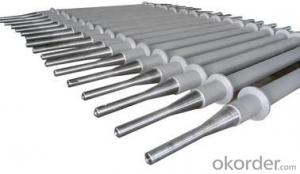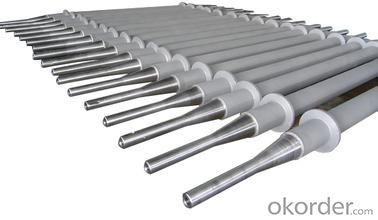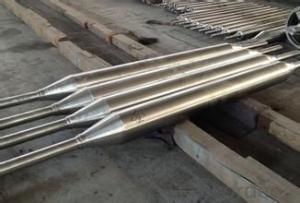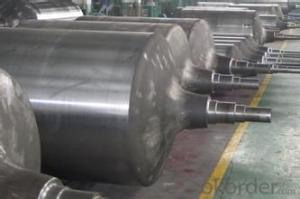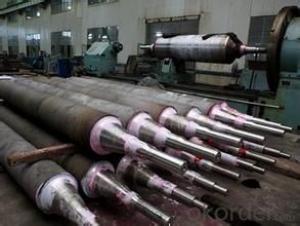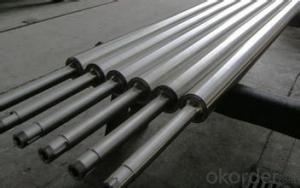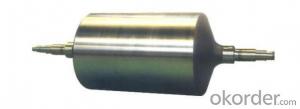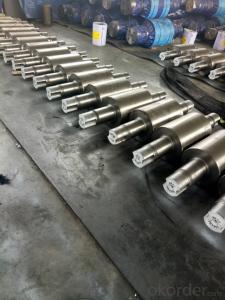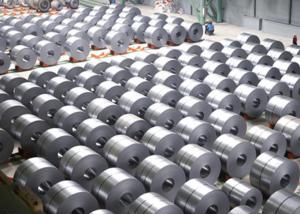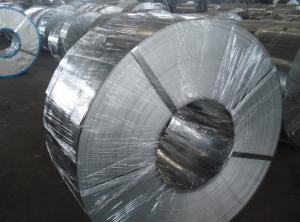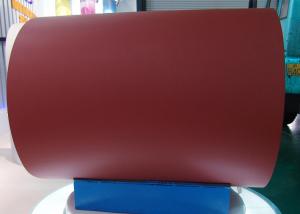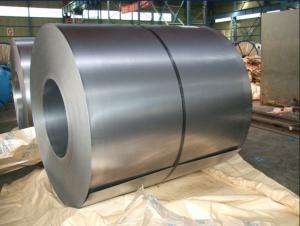Centrifugal Casting Heat Resistant Furnace Roll
- Loading Port:
- Tianjin
- Payment Terms:
- TT OR LC
- Min Order Qty:
- 1000 PCS
- Supply Capability:
- 10000 PCS/month
OKorder Service Pledge
OKorder Financial Service
You Might Also Like
Quick Details
| Condition: | New | Type: | Other | Usage: | Heat Treatment Furnace |
| Place of Origin: | (Mainland) | Brand Name: | Dimension(L*W*H): | OD70 to 1400mm | |
| Weight: | depend on size and material | Certification: | ISO9001:2008;SGS | Warranty: | 12 months |
| After-sales Service Provided: | Overseas third-party support available | Application: | continuous annealing furnace, heating treatment furnace, etc | Material: | heat resistant alloys, cobalt base alloys |
| Standard: | ANSI, ASTM, ASME, DIN, GB | Test: | PT UT RT | Technics: | Centrifugal casting/spun casting |
| Advantage: | Experienced staff ,complete inspection facility to assure quality |
Packaging & Delivery
| Packaging Detail: | seaworthy wooden case ,or as per buyers' need. |
| Delivery Detail: | according to contract and quantity. |
Specifications
Furnace roll
1.Standard:ANSI, ASTM, ASME, DIN, GB
2.Certificate: ISO9001:2008
3.Size: according to drawing.
centrifugal casting heat resistant furnace roll for CAL and CGL
Product name | Furnace roll |
Material | High nickel and high chrome heat resistant alloys, cobalt base alloys, like HU, HT, HK, HP, HW, 24/24NbTiZr, 50Cr/50Ni (2.4813), 1.4865, 1.4849, 1.4848, 1.4410, 1.4059, 1.4841, 1.4845, 1.4852, 2.4879 or as per customer's requirements
|
Application | Working at high temperature environment on average: 800 to 1200°C,used in steel mills like continuous annealing furnace, heating treatment furnace, etc. |
Process | Barrel/tube is made by centrifugal casting and will be machined subsequently. Shaft/journal will be |
Standard | ANSI, ASTM, ASME, DIN, GB |
Specification | According to drawings |
Certificate | ISO9001:2008 |
Packaging & Shipping
sea worthy packaging, wooden case or according to requirements
Our Services
1.More than 30 years of experience in metallurgical industry and R&D department enable us to offer you products with
best quality and price.
2.Highly professional staff and complete inspection facility to guarantee the quality.
3.Attach great importance to sales and customer service.
4.To assure the delivery time, we can work 24 hours a day by 3 shifts and seven days a week.
- Q: What are the different methods of joining steel components together?
- There are several methods of joining steel components together. These include welding, which involves melting the edges of the components and fusing them together; bolting, where the components are held together using screws or bolts; riveting, which involves joining the components using metal pins called rivets; and adhesive bonding, where a strong adhesive is used to bond the components together.
- Q: What are the different types of steel scaffolding systems?
- There are several types of steel scaffolding systems, including frame scaffolding, tube and clamp scaffolding, system scaffolding, and suspended scaffolding. Frame scaffolding consists of vertical frames connected by horizontal and diagonal braces, providing a stable structure. Tube and clamp scaffolding uses steel tubes and clamps to create a flexible and adjustable system. System scaffolding utilizes prefabricated components, such as modular frames and braces, for quick assembly and versatility. Suspended scaffolding is suspended from the roof or other elevated structure, allowing workers to access hard-to-reach areas.
- Q: How do steel products contribute to the defense and military sector?
- Steel products contribute significantly to the defense and military sector due to their inherent strength, durability, and versatility. Steel is a critical material used in the construction of a wide range of defense equipment, including armored vehicles, warships, submarines, and aircraft carriers, providing them with enhanced protection against various threats. Additionally, steel is used in the manufacturing of munitions, firearms, and other weaponry, ensuring their reliability and effectiveness in combat situations. Moreover, steel structures and infrastructure are vital for military bases, command centers, and logistics facilities, enabling efficient operations and support for military personnel. Overall, steel products play a crucial role in enhancing the defense capabilities and national security of a country.
- Q: What are the different types of steel products used in the manufacturing of gardening tools?
- Some of the different types of steel products used in the manufacturing of gardening tools include stainless steel, carbon steel, and alloy steel. Stainless steel is commonly used for its corrosion resistance and durability, making it suitable for tools exposed to moisture and outdoor conditions. Carbon steel is known for its strength and toughness, making it suitable for heavy-duty tools that require sharp edges, such as pruning shears or hedge trimmers. Alloy steel, a combination of different metals, offers a balance between strength, durability, and affordability, making it a popular choice for various gardening tools like shovels, rakes, and hoes.
- Q: What are the different types of steel wires and their applications?
- There are several types of steel wires used in various applications. Some common types include low carbon steel wire, high carbon steel wire, stainless steel wire, galvanized steel wire, and spring steel wire. Low carbon steel wire is versatile and commonly used in construction, fencing, and general-purpose applications. High carbon steel wire is stronger and more durable, making it suitable for springs, piano wires, and wire ropes. Stainless steel wire is corrosion-resistant and often used in marine environments, medical instruments, and food processing industries. Galvanized steel wire is coated with zinc to prevent rust and is commonly used in agriculture, construction, and electrical applications. Spring steel wire is designed to have excellent elasticity and is used in springs, suspension systems, and mechanical applications where high strength and flexibility are required. Overall, the choice of steel wire depends on the specific requirements of the application, considering factors such as strength, corrosion resistance, and flexibility.
- Q: How are steel sheets used in roofing and cladding systems?
- Steel sheets are commonly used in roofing and cladding systems due to their durability, strength, and resistance to weathering. These sheets are typically installed to create a protective barrier against external elements such as rain, wind, and sunlight. Steel sheets are lightweight, easy to install, and can be customized to fit various architectural designs. They provide structural support to buildings, ensuring longevity and stability. Additionally, steel sheets offer aesthetic appeal and can be coated or painted to enhance their appearance.
- Q: What are the different types of steel tanks and their applications in the chemical industry?
- There are various types of steel tanks used in the chemical industry, each with specific applications. Some common types include carbon steel tanks, stainless steel tanks, and alloy steel tanks. Carbon steel tanks are versatile and widely used for storing liquids, gases, and chemicals. Stainless steel tanks are corrosion-resistant and ideal for storing corrosive chemicals or materials. Alloy steel tanks are used for specialized applications that require high strength and resistance to extreme temperatures. These tanks are crucial for storing and transporting various chemicals and substances safely in the chemical industry.
- Q: What are the different types of steel fencing materials?
- There are several types of steel fencing materials, including wrought iron, galvanized steel, aluminum-coated steel, and stainless steel. Each type has its own unique characteristics and benefits, such as durability, corrosion resistance, and aesthetic appeal.
- Q: How are steel bars used in the reinforcement of bridges and flyovers?
- Steel bars are used in the reinforcement of bridges and flyovers to provide strength and stability to the structures. These bars are typically inserted into the concrete during construction to enhance the load-bearing capacity and prevent any potential cracking or failure. The steel bars, also known as rebar, act as a framework within the concrete, absorbing and distributing the loads and forces generated by the bridge or flyover, thus ensuring their structural integrity and durability.
- Q: What are the uses of steel in the construction of shopping malls and retail centers?
- Steel is commonly used in the construction of shopping malls and retail centers due to its strength, durability, and cost-effectiveness. It provides structural support for the building, allowing for large open spaces and flexible layouts. Steel also enables the construction of multi-level structures, including parking garages and mezzanine floors. Additionally, steel's fire resistance properties enhance the safety of these commercial buildings.
Send your message to us
Centrifugal Casting Heat Resistant Furnace Roll
- Loading Port:
- Tianjin
- Payment Terms:
- TT OR LC
- Min Order Qty:
- 1000 PCS
- Supply Capability:
- 10000 PCS/month
OKorder Service Pledge
OKorder Financial Service
Similar products
Hot products
Hot Searches
Related keywords
